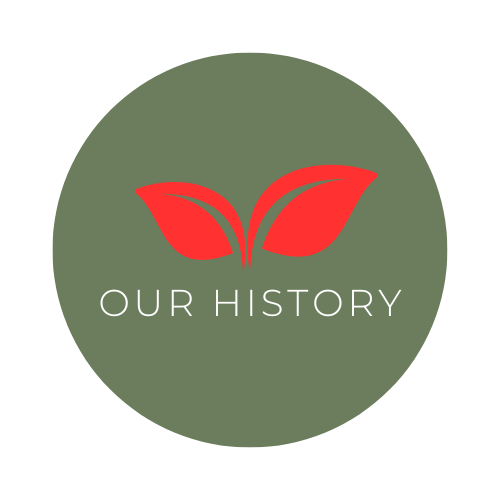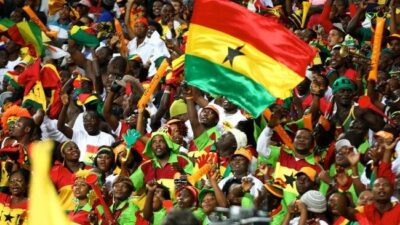Where is Ghana?
Ghana is a country in Western Africa. Situated on the coast of the Gulf of Guinea, it is bordered by Burkina Faso, Togo and Cote d’Ivoire. Ghana was the first black African country south of the Sahara to achieve independence from colonial rule.
The modern state of Ghana is named after the medieval Ghana Empire of West Africa. The actual name of the Empire was Wagadugu. Ghana was the title of the kings who ruled the kingdom. It was controlled by Sundiata in 1240 AD and absorbed into the larger Mali Empire. Mali Empire reached its peak of success under Mansa Musa around 1307.
Accra is the capital of Ghana. It has been one of the fastest growing cities in Africa since the pre-colonial era.
What are the people of Ghana like?
The people of Ghana are Black and there are several ethnic subgroups within the country, most notably the Akan which is the largest group, the Fante, Baule and Guang are others.
The population of Ghana is incredibly diverse, and the government recognises a whole host of indigenous languages as being national languages.
Two of the most widespread are the Twi language of the Ashanti people – which is spoken in the southern and central regions – and the Dagbani language of the Dagomba people – more commonly spoken by people in areas to the north.
Ethnic consciousness persists in many areas and at times tensions have erupted especially in northern Ghana into violent clashes with many fatalities. At all levels in government and in public life, an effort has been made to play down ethnic differences, a policy that has been helped by the adoption of English as the official language.
Ghanaian food is a mix of indigenous flavours and outside influences – like European and Indian. You will find tomato-based stews with complex flavours throughout Ghana. A staple of Ghanaian cuisine is jollof rice, a one-pot rice dish that includes a variety of Ghanaian spices with tomatoes and chilli.
When was Ghana colonised?
A transformation in Ghanaian history started with the establishment of direct sea trade with Europe following the arrival on the coast of Portuguese mariners. In 1471, under the patronage of Prince Henry the Navigator, the Portuguese had reached the area that was to become known as the Gold Coast. The name stuck until 1957. Europeans had learned that the area was the source of gold that reached Muslim North Africa by way of trade routes across the Sahara.
In an attempt to preserve a monopoly of the trade, the Portuguese initiated the practice of erecting stone fortresses on the coast on sites leased from the native states. They decided to build their first permanent trading post in 1482. The trading post was situated on the western coast of present-day Ghana. This fortress, Elmina Castle, constructed to protect Portuguese trade from European competitors and hostile Africans, still stands.

The Portuguese position on the Gold Coast remained secure for almost a century. During that time, Lisbon leased the right to establish trading posts to individuals or companies that sought to align themselves with the local chiefs and to exchange trade goods both for rights to conduct commerce and for slaves whom the chiefs could provide. During the seventeenth and eighteenth centuries, adventurers–first Dutch, and later English, Danish, and Swedish– were granted licenses by their governments to trade overseas. On the Gold Coast, these European competitors built fortified trading stations and challenged the Portuguese. Sometimes they were also drawn into conflicts with local inhabitants as Europeans developed commercial alliances with local chiefs.
With the opening of European plantations in the New World during the 1500s, which suddenly expanded the demand for slaves in the Americas, trade in slaves soon overshadowed gold as the principal export of the area. The west coast of Africa became the principal source of slaves for the New World. The apparently limitless market and the substantial profits to be gained from the slave trade attracted adventurers from all over Europe.
The Portuguese monopoly, already considerably eroded, gave way completely when traders from the Netherlands, England, Denmark, Sweden, and Prussia discovered that the commercial relations developed with the Gold Coast states could be adapted to the export of slaves, then in rapidly increasing demand for the American plantations, as well as to gold trading. By the mid-18th century, the coastal scene was dominated by the presence of about 40 forts controlled by Dutch, British, or Danish merchants.
Much of the conflict that arose among European groups on the coast and among competing African kingdoms was the result of rivalry for control of this trade.
By the latter part of the 19th century, the Dutch and the British were the only traders left. And when the Dutch withdrew in 1874, Britain made the Gold Coast a crown colony.
Was there slavery in Ghana before colonisation?
It has to be said that slavery and slave trading were already firmly ingrained in many African societies before their contact with Europe. In most situations, men as well as women captured in local conflicts became slaves. In general, however, slaves in African communities were often treated as junior members of the society with specific rights, and many ultimately became part of their masters’ families as full members. Given traditional methods of agricultural production in Africa, slavery in Africa was quite different from that which existed in the commercial plantations in the colonies.
The idea that some Africans sold their own people into slavery has been downplayed by history books, but it’s a fact that Ghana has never tried to hide. As part of its 50th anniversary of independence, Ghana apologised for its role in slavery.
When did Ghana become independent?
The colony’s drive for independence was led by nationalist and Pan-African leader Kwame Nkrumah, who viewed Ghana’s sovereignty as being important not only for the Ghanaian people but for all of Africa, saying “Our independence is meaningless unless it is linked up with the total liberation of the African continent.” Indeed, more than 30 other African countries, spurred by Ghana’s example, followed suit and declared their own independence within the next decade.

Nkrumah was born Kwame Francis Nwia Kofie in the south-west of the Gold Coast in 1909. In 1939 he left to study economics and sociology in America. There and in London he was active in the Pan African movement which was demanding freedom and independence for the colonies.
Nkrumah returned to his homeland in 1947 and became Secretary General of the United Gold Coast Convention which was campaigning to end British rule. However, in 1948 he was expelled from the organisation for leading a campaign of civil disobedience. He responded by founding the Convention People’s Party (CPP) in 1949, the first mass political party in black Africa.
Imprisoned by the British in 1950, he was released the next year after the CPP’s landslide election victory. In 1952 Nkrumah became the country’s first prime minister.
Ghana gained independence on 6 March 1957 and became a republic in 1960. Nkrumah worked to improve living standards at home but his ambitions extended beyond national boundaries to the creation of a federal union of African states. He became a dictator and was eventually overthrown in a coup in 1966, heralding years of mostly-military rule.
In 1981 Flight Lieutenant Jerry Rawlings staged his second coup. The country began to move towards economic stability and democracy.
In April 1992 a constitution allowing for a multi-party system was approved in a referendum, ushering in a period of democracy. A well-administered country by regional standards, Ghana is often seen as a model for political and economic reform in Africa.
What is Ghana like today?
Ghana has one of the best-developed educational systems in West Africa. Basic education consists of two years of kindergarten, six years of primary education, and three years of junior secondary education. This is followed by three years of senior secondary education, which consists of vocational programs or courses that prepare students for university studies or other third-cycle coursework in high-level polytechnics and specialised institutions. Basic education is free and compulsory. Senior secondary education was made free in 2017.
Gold, cocoa and more recently oil form the cornerstone of Ghana’s economy and have helped fuel an economic boom. Ghana is the world’s second largest cocoa producer behind Ivory Coast and Africa’s biggest gold miner after South Africa. It is one of the continent’s fastest growing economies and has made major progress in the attainment and consolidation of growth.





